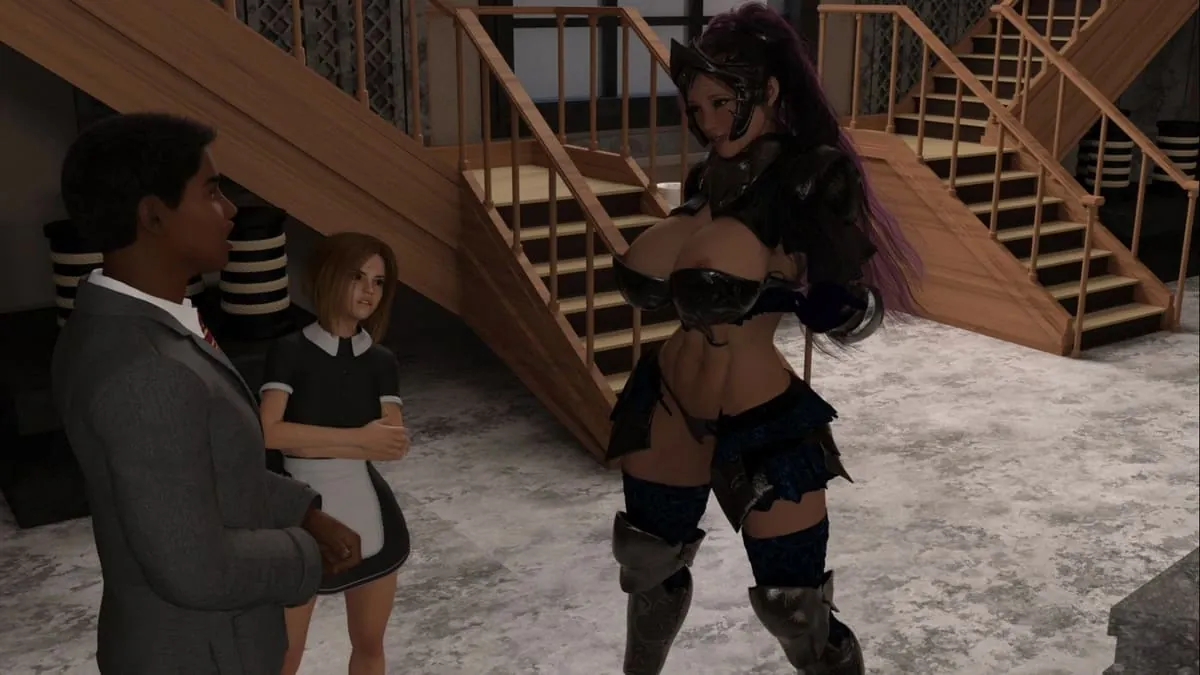
Meeting
Play Meeting
Meeting review
Explore the unique features and gameplay of Meeting, the immersive adult-themed game
Meeting is an engaging interactive game that offers players a unique narrative-driven experience within an adult-themed setting. This article explores the core elements of Meeting, highlighting its gameplay, storyline, and what makes it stand out in its category. Whether you’re curious about the game’s mechanics or want to understand its appeal, this guide provides a comprehensive overview to help you get started and enjoy the experience fully.
Understanding Meeting: Gameplay and Storyline
What is Meeting? An Overview
Picture this: You’re sipping coffee, scrolling for something fresh in gaming, and BAM 💥—you discover Meeting. This isn’t your grandma’s visual novel! As an interactive narrative game, Meeting throws you into a world where every choice crackles with consequence. Think of it as a “choose-your-own-adventure” for grown-ups, where relationships, tension, and raw human drama take center stage. 🎭
From my first playthrough, I was hooked by how the Meeting game overview redefines immersion. Unlike typical dating sims, it layers psychological depth with cinematic storytelling—like if HBO wrote a game script. The core premise? You navigate intricate social dynamics across branching scenarios, where a single dialogue pick can flip alliances or unravel secrets. 🔍
What makes it unique? Three things:
– Zero hand-holding: No tutorials—just raw emotional intuition.
– Real-time chemistry: Characters remember your past choices (even the awkward ones 😬).
– Mature themes: It tackles ambition, betrayal, and desire without sugarcoating.
Seriously, after three playthroughs, I still found new Meeting game features—like how weather patterns subtly influence character moods. Who knew rain could make a virtual CEO so… confessional? 🌧️💼
Core Gameplay Mechanics Explained
Alright, let’s geek out on Meeting gameplay mechanics! Imagine a chessboard where every move whispers to your emotions. 🧠❤️ You’re not just clicking options—you’re sculpting relationships through:
-
The Dialogue Wheel: Like a personality polygraph. Pick “charm,” “probe,” or “deflect” responses. Once, I chose “deflect” during a confrontation… big mistake. The character shut down for two chapters! 😅
-
Time Pressure: Decisions auto-skip if you hesitate. My friend panicked and clicked randomly—ended up with a nemesis instead of a lover. ⏳💔
-
Trust Metrics: Hidden “rapport scores” alter story paths. Help a character cover up a scandal? Their loyalty soars… but others might blackmail you. 📊🔗
The genius? Player choices Meeting game designs aren’t just “good vs. evil.” Opting for brutal honesty might gain respect but burn bridges. Meanwhile, Meeting gameplay mechanics reward replayability—I unlocked four endings by tweaking my approach to one character’s anxiety.
Here’s how key systems synergize:
| Gameplay Feature | Narrative Element | Player Impact |
|---|---|---|
| Dynamic Dialogue | Character backstories | Unlocks hidden motivations |
| Relationship Timers | Evolving conflicts | Forces strategic sacrifices |
| Environment Interaction | Symbolic settings (e.g., stormy balconies) | Amplifies emotional stakes |
Pro tip: Track choices in a notebook! I missed a corporate espionage arc because I forgot I’d flirted with a rival’s assistant. 🕵️♂️📓
Narrative and Character Development
Let’s talk Meeting storyline—a web of ambition and intimacy that’d make Shakespeare nod approvingly. 👑 The plot orbits a high-stakes corporate merger, but the real magic? How character development in Meeting ties to your actions. Take Elara, the COO: Ignore her workaholic rants, and she becomes cold. Validate her stress? She shares game-changing secrets.
Your player choices Meeting game ripple through three acts:
– Act 1: Build alliances during gala events. (I accidentally insulted a investor’s art collection… goodbye funding! 🖼️💸)
– Act 2: Navigate betrayals. Choices here define who brings you coffee vs. who sabotages you.
– Act 3: Unmask antagonists. My “ally” leaked my emails because I didn’t notice her jealousy meter.
What blew my mind? Character development in Meeting uses “mirror scenes.” Treat someone kindly, and they’ll subconsciously mimic your gestures later. Tiny details like this make the interactive narrative game feel alive.
Plus, the Meeting storyline avoids clichés. No “damsel in distress”—just flawed humans. When I replayed as a ruthless negotiator, the CEO (who’s usually stoic) broke down crying. Gut-wrenching… and brilliant. 😢🎯
In short: Meeting isn’t played—it’s felt. Your empathy, impatience, or cunning rewrite the script daily. Miss one coffee chat? That’s a subplot buried forever. Ready to leave your mark? 🔥💬
Meeting offers a compelling blend of interactive storytelling and engaging gameplay that captivates players seeking a rich narrative experience. Its well-crafted characters and meaningful choices create a dynamic environment that keeps players invested throughout. Whether you’re new to this type of game or looking to deepen your understanding, Meeting provides a unique and enjoyable experience worth exploring. Dive in and discover the layers of interaction and story that make Meeting stand out.










